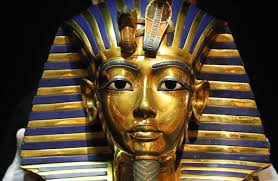Pharaoh as god and upholder of Ma’at

The Pharaohs maintained many different titles and they played a vital role within the kingdom of Egypt. These titles consisted of Pharaoh as the Chief Priest of the gods, Pharaoh as the Chief Judge and Lawmaker, Pharaoh as Administrator and Pharaoh as a Military Leader. All of these were important to uphold Ma’at in Egypt.
Ma’at, thought to be pronounced as Muh-aht, was the Ancient Egyptian concept for order, law, morality and justice, which was deified as a goddess. Ma’at was seen as being charged with regulating the stars, seasons, and the actions of both mortals and deities, after she had set the order of the universe from chaos at the moment of creation (the Egyptians didn’t believe in evolution either).
The Egyptians believed that she continuously prevented the universe from returning to chaos. Her primary role in Egyptian mythology dealt with the weighing of souls that took place in the underworld, called Duat. Her feather was the measure that determined whether the souls of the departed would reach the paradise of afterlife successfully.
In Duat, the hearts of the dead were said to be weighed against the single shu feather, symbolically represented by the goddess Ma’at, in the Hall of the Two Truths. There, Ammit, the personification of divine retribution, devoured a heart that was unworthy and its owner was condemned to remain in Duat. Ancient Egyptians considered the heart the location of the soul, and those people with good and pure hearts were sent to Aaru, which was the Egyptian equivalent of heaven. They described it as paradise, the land of eternity, a field of peace and interestingly enough, the water of life. Osiris eventually came to be seen as the guardian of the gates of the underworld after he became part of the Egyptian pantheon.
Thus, to the Egyptian mind, the goddess Ma’at bound all things together in an indestructible unity; the universe, the natural world, and the individual were all seen as parts of the wider order generated by her. It was the responsibility of Pharaoh, as a god, to maintain Ma’at. To that end, Pharaoh had four titles.
The first title of Pharaoh was Chief Priest of the gods. The most important function of Pharaoh was Chief Priest. This role was important because when Pharaoh maintained a good relationship between the gods and Egypt, Ma’at was guaranteed. He acted as a channel of divine power, and performed religious rituals. Of course the priests, on his behalf, carried out most of these tasks. One of the most important religious festivals was called Heb-sed, which renewed the Pharaoh’s powers to rule. This festival was held on the anniversary of the Pharaoh’s accession.
The second title of Pharaoh was Chief Judge and Lawmaker. Pharaoh’s number one responsibility as Chief Judge and Lawmaker was to maintain Ma’at. It consisted of the right order of things, where nature was in balance and Egypt was prosperous and secure. The Egyptians believed that Ma’at was a state of harmony between the gods and humans.
The third title of Pharaoh was Administrator. Pharaoh was responsible for everything undertaken in Egypt. The image of Administrator was represented as a ruler who ensured that all the land was productive and commerce was profitable. Although this was another important role, Pharaoh was not concerned with the monotonous day-to-day details of administration. Therefore, Pharaoh usually appointed a Prime Minister to carry out those duties. The Prime Minister held the most important position in Egypt, second only to Pharaoh himself. They were normally chosen from Egyptian nobility. Joseph was chosen as Prime Minister during the rule of the Hyksos, precisely because they were not Egyptian, and neither was he.
The fourth title of Pharaoh was Commander. Pharaoh was in charge of the army and the navy. It was Pharaoh’s duty to preserve Ma’at by keeping foreign people out of Egypt. Some of the New Kingdom rulers have been referred to as Warrior Pharaohs. The first famous ruler to portray the Warrior Pharaoh image was Ahmose. He achieved this status from his grand military campaigns that inevitably expelled the Hyksos invaders. However, Thutmose III was perhaps that greatest of all the Warrior Pharaohs, and was called the Napoleon of Ancient Egypt.
Therefore, the ten plagues targeted the gods of Egypt, and threatened Pharaoh as the keeper of Ma’at. The plagues surely must have pointed out to the Egyptians that Pharaoh was incapable of turning the tide of the disastrous situation that they found themselves in, and therefore demonstrated his failure as both a ruler and a god.
Rulers of nations today think they and their governments are in control of their nation, but Elyon “God Most High” the God of Abraham, Isaac and Jacob, is sovereign over the entire world and in control of all. When world events seem out of control, we can be at peace knowing that God is watching over and nothing ever escapes his eye. He never sleeps, never slumbers. Our help comes from the LORD, the maker of heaven and earth (Psalm 121).



Leave A Comment